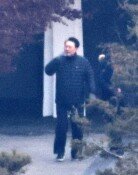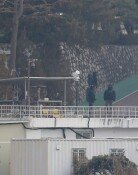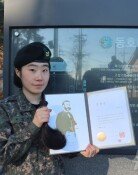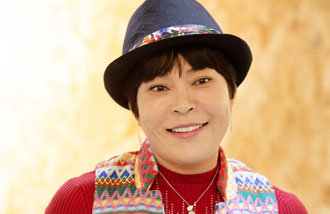Moon left mired in tricky issues prior to his visit to Washington
Moon left mired in tricky issues prior to his visit to Washington
Posted April. 19, 2021 07:30,
Updated April. 19, 2021 07:30
U.S. President Joe Biden and Japanese Prime Minister Yoshihide Suga agreed to work closely to strengthen their united front against China and ensure North Korea’s denuclearization during a summit talk held in Washington, D.C. on Friday (local time). Proclaiming their nations as two strong democracies in the Indo-Pacific region, President Biden and Prime Minister Suga promised to jointly respond to China’s rising power, issues regarding the East and South China Seas and North Korea challenges. They clarified their willingness to solidify the trilateral relationship of Washington, Tokyo and Seoul. Furthermore, their summit talk gave the two nations an opportunity to emphasize a wide range of cooperation from security to the economy to technology such as 5G networks, semiconductor supply chain and AI.
The U.S-Japan summit talk on Friday only makes it clear that Washington’s main diplomatic focus has been shifted to Asia – in particular, China against which it seeks to stand. The Biden administration has already showed its strong determination to build a scrum to besiege Beijing on the diplomatic arena by making the first diplomatic visit to Japan and South Korea with its state and defense secretaries in presence; and by choosing Japan as the first summit partner. In particular, the two heads of state during the summit talk boasted their strong cooperative relationship not only in security and the economy but also in cutting-edge technology, human rights and values to fight against the rising power of China.
The ever increasing affinity between Washington and Tokyo will hold significance for the upcoming U.S.-South Korea summit talk scheduled next month. Chances are Washington will ask Seoul to join a united front against China as deeply as Japan does, which only makes it all the more difficult for Seoul to address its diplomatic dilemma because it has tried to strike the balance between Washington and Beijing. The Chinese government strongly criticized Washington and Tokyo for discussing Taiwan Strait issues, which it finds sensitive to deal with, by portraying it as an obvious interference in domestic affairs. All these circumstances require Seoul to choose which side to take just as Tokyo has been asked to stand by Washington.
A closer relationship between Washington and Tokyo may allow the latter to have a greater say in finalizing the former’s forthcoming North Korea policy and determining its role in helping improve the Seoul-Tokyo relationship. Given that Japanese Prime Minister Suga mentioned CVID (complete, verifiable and irreversible dismantlement) of Pyongyang’s mass destruction weapons of all kinds and ballistic missiles; and that U.S. climate envoy John Kerry said on his visit to Seoul that he finds it inappropriate to intervene in Japan’s discharge of contaminated water into the ocean, Seoul seems to be pushed into a corner diplomatically.
The South Korean government grapples with the dual challenge of not only putting the U.S.-R.O.K. alliance first but also maintaining good economic terms with China, its largest trade partner, while resolving North Korea’s nuclear issues at the negotiating table. Nevertheless, considering that tensions between Washington and Beijing are ever escalating, Seoul is likely to be put aside with none of pending issues left addressed, if it stays reluctant to take a clear diplomatic stance. If it fails to echo its closest ally’s voice, only mistrust and ostracism will follow. Now is the time to practice diplomatic wisdom based on alliance to ensure cooperation and solidity as per international norms and principles while coordinating room for maneuver.







